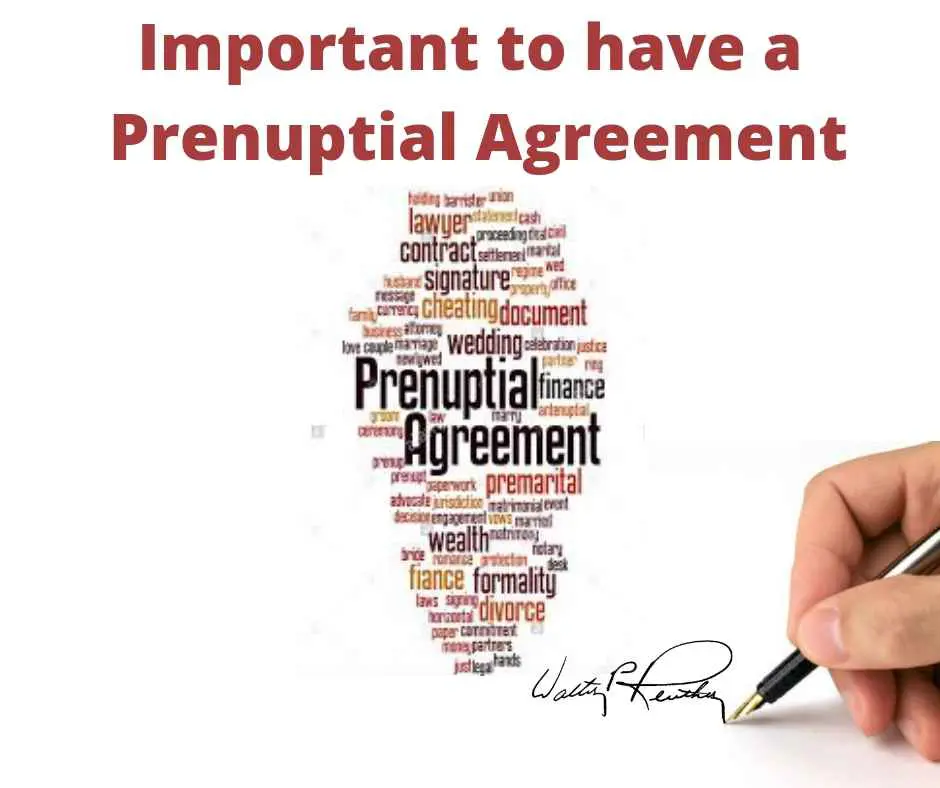Shaikh Law Firm is dedicated to empowering women in their journey to protect their financial futures through prenuptial agreements. As experienced prenuptial agreement lawyers, we understand the intricacies involved in preparing these critical documents
We understand the detailed intricacies of these agreements, and we’re here to guide you through each step of the process. In a world where financial transparency and security are becoming as integral to a marriage as the emotional commitment itself, considering a prenuptial agreement is an essential step in planning for your future.
Prenuptial agreements are often clouded by misconceptions and negative associations, but they shouldn’t be. These contracts are not predictors of a doomed marriage but are practical tools designed to provide clarity and financial security for both parties.
Our team of seasoned lawyers is committed to helping you understand your rights and the importance of these agreements. We see them as a prudent step towards protecting your assets and financial future.


A prenuptial agreement, also known as a marriage contract in Ontario, is a legal document entered into by a couple before they get married or enter into a common-law relationship. This agreement outlines the ownership of the couple’s respective assets and how these assets will be divided should the marriage end in divorce.
Here are some key points to understand about prenuptial agreements:
Asset Protection: A prenuptial agreement primarily protects each party’s individual rights to their premarital assets. This means that the wealth or property you bring into the marriage remains yours in the event of a divorce.
Financial Responsibilities: The agreement can stipulate the financial responsibilities of each party during the marriage. It can detail who will pay for what, how joint expenses will be handled, and how much each party will contribute to joint savings or retirement accounts.
Debt Protection: A prenuptial agreement can also protect you from your partner’s debts. This means that if your partner has significant debts before marriage, you can stipulate in the agreement that you are not responsible for these debts in case of divorce.
Estate Planning: Prenuptial agreements can be a useful tool in estate planning. They can ensure that specific assets or family heirlooms are passed on to children from previous relationships or other designated heirs.
Spousal Support: The agreement can set out the amount and duration of spousal support, although it’s important to note that courts can override these provisions if they are not in the recipient’s best interest.
While it may seem unromantic or pessimistic to plan for the end of a marriage before it has even begun, a prenuptial agreement is, in reality, a practical tool that can provide a clear financial roadmap for a couple. It can help avoid potential conflicts and ensure a fair and equitable distribution of assets in the event of a divorce.
Prenuptial agreements, commonly known as prenups, are contracts entered into by two people before they get married or enter into a civil partnership. These agreements generally outline how assets, debts, and other financial matters will be dealt with if the marriage or partnership ends. For women entering into such agreements, there are several specific considerations to keep in mind to ensure that they are adequately protected. Here are some essential elements that a woman should ask for in a prenup:
I. Open and Honest Financial Disclosure
First and foremost, complete transparency is critical when crafting a prenup. Both parties should openly disclose all their assets, liabilities, income, and expected inheritances. This not only forms the foundation of trust in a relationship, but also prevents any accusations of hidden assets later on, which can nullify the prenup.
II. Protect Pre-Marital Assets
Any assets acquired before the marriage should be clearly outlined and protected in a prenup. This can include real estate, investments, savings, and personal items of significant value. Ensure that the agreement spells out that these items remain your sole property in the event of a divorce.
III. Define Marital Property
Any income or assets acquired during the marriage, unless it is an inheritance or gift to one party, is usually considered marital property. A prenup can define what constitutes marital property and how it will be divided in the case of a divorce.
IV. Division of Debts
A prenup can also outline how any pre-existing and future debts will be dealt with. This prevents you from being held responsible for your partner’s debts in case of a divorce.
V. Alimony/Spousal Support
Alimony or spousal support is another key consideration in a prenup. If you plan to take a break from your career, especially to raise children, ensure that the agreement includes a provision for spousal support.
VI. Consideration of Children from Previous Relationships
If you have children from previous relationships, a prenup can help protect their financial future. You can specify that certain assets be preserved for them, regardless of the fate of the marriage.
VII. Sunset Clause
Some couples include a sunset clause in their prenups, which makes the agreement expire after a certain period. This can provide an extra sense of security and shows a commitment to the long-term health of the relationship.
VIII. Legal Assistance
Ensure that you both have independent legal advice when creating a prenup. This is to ensure that the agreement is fair and that both parties understand the implications of what they’re signing.
IX. Provision for Change in Financial Circumstances
A prenup should include provisions for changes in financial circumstances, like a significant increase in income, receiving an inheritance, or facing financial hardship. These changes can impact the fairness of the prenup, so it’s essential to have a plan in place.
X. Ensuring Fairness
Above all, a prenup should be fair to both parties. An extremely one-sided agreement may not hold up in court, and it’s not a healthy way to start a marriage.
Here is a more in-depth look at some of these key points.
Transparency and Complete Financial Disclosure
Full disclosure of assets and debts is a critical starting point when drafting a prenuptial agreement. This is necessary to ensure that both parties understand the financial implications of their marriage. Every asset, liability, income stream, or expected inheritance should be disclosed, documented, and considered in the prenup.
Any failure to fully disclose assets and debts can have serious consequences. If it is later discovered that one party did not disclose all their assets at the time of signing, the entire prenup could be thrown out by a court.
Protecting Pre-Marital Assets
One of the most fundamental reasons for a prenup is to protect assets that were owned before marriage. This can be especially significant if one party is coming into the marriage with considerably more assets than the other.
Specific assets can be identified in the prenup as separate property, meaning they would not be subject to division in the event of a divorce. These might include properties, businesses, or savings that one party has acquired before marriage. The prenup can state clearly that these will remain the sole property of the party who brought them into the marriage.
Defining Marital Property and Its Division
Just as the prenup identifies and protects pre-marital assets, it also defines what will be considered marital property — that is, assets acquired during the marriage. Marital property can include income, real estate, and other assets accumulated while married.
A prenup can lay out how this property will be divided in the event of a divorce. This doesn’t necessarily mean a 50/50 split. The division can be based on various factors, including the income of each party, the length of the marriage, and the contributions of each party to the accumulation of assets.
Division of Debts
One often-overlooked aspect of a prenup is how it can protect one party from the other’s debts. If your partner is coming into the marriage with significant debt, or if they accumulate it during the marriage, you could find yourself liable for it in the event of a divorce.
However, a well-drafted prenup can specify that each party will be responsible for their own pre-marital debts. It can also lay out how any debts incurred during the marriage will be divided.
Alimony or Spousal Support
Another critical aspect of a prenup is addressing the potential need for spousal support. If one party plans to take a break from their career, for example, to raise children, it’s crucial to ensure they will be financially secure in the event of a divorce.
The prenup can stipulate the amount, duration, and conditions for spousal support. The specifics will vary depending on the circumstances and can be influenced by factors such as the length of the marriage, the standard of living during the marriage, and the earning capacity of each party.
Consideration of Children from Previous Relationships
If one or both parties have children from previous relationships, a prenup can be a valuable tool to ensure their financial future.
The prenup can specify that certain assets are to be preserved for these children in the event of a divorce. It can also protect the children’s rights to inherit specific assets upon the death of their parent. This can be crucial in preventing conflicts and ensuring the children’s financial security.
Sunset Clause
A sunset clause in a prenup specifies that the agreement will automatically expire after a certain period of time. This can provide an additional level of comfort and security for both parties. It shows a commitment to the long-term health of the relationship, rather than focusing solely on what happens if it ends.
However, the details of the sunset clause should be carefully considered. It should be clear when and under what circumstances the agreement will expire, and what the financial implications will be.
Independent Legal Advice
Both parties should have independent legal advice when drafting a prenup. This ensures that the agreement is fair and that both parties fully understand the implications of what they’re signing.
A lawyer can guide you through the process, help identify and protect your interests, and ensure that the agreement is legally binding. They can also provide advice on the potential tax implications of the prenup.
Provision for Change in Financial Circumstances
Financial circumstances can change significantly over the course of a marriage. The prenup should include provisions for dealing with these changes. For instance, if one party’s income significantly increases during the marriage, or if one party receives a large inheritance, this could impact the fairness of the original agreement.
A well-drafted prenup can include provisions to review the agreement at certain intervals or when specific events occur, and to adjust it if necessary.
Ensuring Fairness
A prenuptial agreement should be fair to both parties. This doesn’t necessarily mean that everything is divided equally, but rather that the division is equitable considering each party’s contributions and needs.
If a prenup is overly one-sided, it may not hold up in court. Judges can, and often do, reject prenups that they deem to be unfair or unconscionable.
A fair prenup is more than just a legal document — it’s a way of showing respect for each other’s rights and setting the groundwork for a strong, healthy marriage.
In conclusion, a prenuptial agreement can be an essential financial planning tool. It is especially valuable for women to understand and articulate their financial rights and needs. Remember, the point of a prenup is not to prepare for a marriage to fail, but rather to establish a solid financial foundation for a marriage to succeed. By ensuring the agreement is fair, comprehensive, and considers potential future changes, you are setting yourself up for a secure future, regardless of what life may bring.

Think Twice Before Using a Prenuptial Agreement Template
While it may be tempting to cut corners and save a few dollars by utilizing an online Prenuptial Agreement Template, we strongly caution against it. The money saved today could potentially cost you significantly in the long run. It is prudent and beneficial to engage a Prenuptial Agreement Lawyer for the creation of your agreement.
Online Prenuptial Agreement Templates may seem like a cost-effective option, but they carry inherent risks. Even if you opt for a template, both parties must secure an Independent Legal Advice (ILA) certificate from a lawyer, thereby diminishing the cost-saving aspect. Additionally, it is critical to note that if a Prenuptial Agreement contravenes family laws, a judge in Canada can dismiss it. Thus, the risks associated with an online template far outweigh the potential savings.
It is of paramount importance for couples to obtain Independent Legal Advice, as you wouldn’t want to end up in a situation where a judge invalidates your Prenuptial Agreement. An experienced Prenuptial Agreement Lawyer will offer insights into various issues and provide guidance tailored to your specific circumstances – a level of personalized attention that online templates can’t provide.
While one lawyer can technically handle the drafting of the entire agreement, the other party must still obtain Independent Legal Advice to avoid a conflict of interests. An expert lawyer will not only reinforce the agreement by ensuring adherence to legal protocols but also ascertain that the agreement is compliant with all Legal Requirements under Family Laws.
A poorly crafted agreement could lead to a party claiming ignorance about the implications of what they were signing, making the agreement non-binding. In contrast, a competent Prenuptial Agreement lawyer ensures that the agreement is drafted meticulously to ensure its legal validity.
Even with the best of intentions and hopes for a lifelong union, it is a practical move to protect your assets for any unforeseen circumstances. At Shaikh Law Firm, we have offices across the Greater Toronto Area (GTA) to accommodate our clients. Our Prenuptial Agreement Lawyer in Toronto Downtown can meet you in person, or you can opt for a phone consultation. We also have meeting locations in Mississauga Square One, Mississauga on Derry and Hurontario, and Mississauga Streetsville, as well as in Brampton, Oakville & Hamilton. To find a Prenuptial Lawyer near you, please visit our Contact Us page.


The cost of a Prenuptial Agreement ranges from $499 to $2,000 +HST, whereas the cost of litigation would range between $10,000.00 to $90,000.00 + HST. However, at our Law Firm, we charge$1350 + Hst for a simple agreement and a more complex one averaging $2,700 plus tax.
Our clients can retain our legal services online by completing the get started online form. Once we have received your request to retain our services, documents and payment we will confirm in writing if we will be representing you in the matter. It is that simple.
Client Intake information
Multiple Meeting Locations
Ajax | Aurora | Peterborough | Barrie |Barrhaven | Bowmanville | Brampton | Brantford | Burlington | Cambridge | Chatham | Clarington | Cooksville | Durham Region | Kanata | Etobicoke | GTA | Guelph | Halton Region | Hamilton | Kawartha | Kingston | Kitchener | London | Markham | Milton | Mississauga | Muskoka |Nepean | Newmarket | Niagara | North York | Oakville | Ottawa | Orleans | Peel Region | Pickering | Richmond Hill | Sault Ste Marie | Scarborough | Saint Catherines | Stouffville | Sudbury | Thornhill | Thunder Bay | Toronto | Unionville | Uxbridge | Vaughan | Waterloo | Whitby | Windsor | York | Ontario | Canada
(905) 795 7757
info@slclawyer.ca
(905) 795 7757